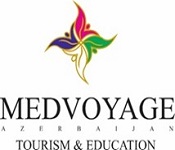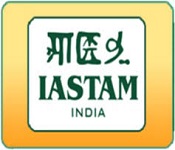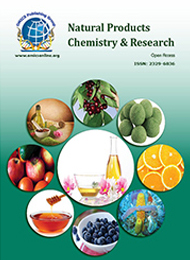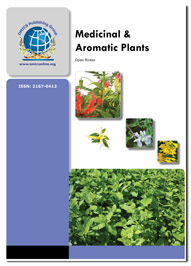Theme: Explore the new horizons in Ethnomedicine & Ethnopharmacology
Ethnomedicine 2019
On behalf of Organizing Committee we invite all the participants from all part of the world to attend the “13th Global Ethnomedicine and Ethnopharmacology Conference” scheduled during December 02-03, 2019 at Hong Kong.
13th Global Ethnomedicine and Ethnopharmacology Conference is the leading meeting dedicated to Plant Biologist, Herbalists, Researchers In the field of Ethnomedicine and Ethnopharmacology with the theme “Explore the new horizons in Ethnomedicine & Ethnopharmacology”
It is a platform that provides an ideal combination of excellent science, an open atmosphere and allowing attendees and speakers to easily focus on academic exchange of ideas and authoritative views which covers the entire spectrum of research in Ethnomedicine and Ethnopharmacology research.
Conference Series organizes a conference series of 3000+ Global Events with over 600+ Conferences, 1200+ Symposiums and 1200+ Workshops in USA, Europe & Asia with support from 1000 more scientific societies and publishes 700+ Open access journals which contains over 30000 eminent personalities, reputed scientists as editorial board members.
13th Global Ethnomedicine and Ethnopharmacology Conference is a unique forum to bring together worldwide distinguished academics in the field of Ethnomedicine and Ethnopharmacology scholars to exchange about state of the art research and technologies. The Conference will feature many exciting academic programs including multiple panels, workshops, affinity group lunches, paper presentations, and scientific sessions by reputed plant researchers from all over the world.
Why to attend?
We endeavour to make 13th Global Ethnomedicine and Ethnopharmacology Conference a success, with your support and high quality talks from Ethnomedicine and Ethnopharmacology Researchers. We assure you that you will experience world class facilities and hospitality throughout the conference session.
With people from around the world focused on gathering some knowledge about Plant Biology, Herbs, Medicinal plants, plant microbiology, plant physiology, agriculture, plant pathology, Agriculture, Plant Molecular and cell biology; this is your ultimate opportunity to accomplish the biggest collection of individuals from the plant researchers. Broadly acclaimed speakers, the most recent techniques, researches, and the most state-of-the-art upgrades in Ethnomedicine and Ethnopharmacology research are indications of this meeting.
Track 01: Ethnomedicinal Plants
In many parts of the world, customary employments of plants by neighbourhood groups for the treatment of different afflictions are important in the improvement of present-day pharmaceuticals. Truth be told, most plant-based meds that were produced by pharmaceutical organizations have their beginnings in ethno-drug. In Africa, therapeutic and fragrant plants are stores of remedial components in the treatment of different sicknesses, for example, jungle fever, diabetes and some more. In the Philippines, there is rich ethno medicinal information among neighbourhood groups be that as it may; this learning is just exchanged to the cutting edge through verbal means and individual experience. Prior documentation of this information that has been distributed has been centred around chosen indigenous tribes. Recently, notwithstanding, piecemeal documentation of ethno medicinal learning of some extra indigenous gatherings has been directed.
Recommended Ethnomedicine Conferences | Top Ethnomedicine Conferences 2019 | Upcoming Ethnomedicine Meetings
Track 02: Ethnopharmacology
Ethnopharmacology is a related study of ethnic groups and their use of drugs. Ethnopharmacology is distinctly linked to plant use, ethnobotany, as this is the main delivery of pharmaceuticals. Ethnopharmacy is the interdisciplinary science that investigates the perception and use of pharmaceuticals within a given human society. Emphasis has long been on traditional medicines, although the approach also has proven useful to the study of modern pharmaceuticals.
Ethnopharmacology is one of the world's quickest developing logical controls including a different scope of subjects. It joins common sciences inquire about on therapeutic, fragrant and harmful plants with socio-social reviews and has regularly been related with the improvement of new medications. The Editors of Ethnopharmacology have collected a global group of famous supporters of give a basic amalgamation of the significant assortment of new learning and confirmation regarding the matter that has risen over the previous decade.
Recommended Ethnopharmacology Conferences | Top Ethnopharmacology Conferences | Upcoming Ethnopharmacology Conferences
Track 03: Traditional Chinese medicine (TCM)
Traditional Chinese Medicine (TCM) is a mending arrangement of Eastern medication created in China over 2,000 years back, joining treatments that are now and again centuries more established. One of its directing standards is to "dissipate underhandedness and bolster the great." notwithstanding treating the ailment, TCM concentrates on fortifying the body's barriers and upgrading its ability for recuperating and to look after well-being.
Traditional Chinese Medicine incorporates how the human body interfaces with all parts of life and the earth, including the seasons, climate, time of day, our eating regimen and enthusiastic states. It seems the way to wellbeing as the amicable and adjusted working of body, brain and soul, and holds that the adjust of well-being relies on upon the unhampered stream of qi (articulated chee) or "life vitality" through the body, along pathways known as meridians. Customary Chinese Medicine experts consider sickness to be the after effect of disturbances in the course of qi.
Recommended Traditional Chinese medicine Conferences | Upcoming Traditional Medicine Conferences | Upcoming Traditional Chinese medicine Conferences
Track 04: Traditional Japanese Medicine
Traditional Japanese Medicine (TJM), an alternative form of medicine used in Japan. Although acupuncture, moxibustion, and several related medical practices also play important roles in TJM, herbal medicine.
The Japanese Traditional Herbal Medicine, Kampo, has gradually re-emerged and 148 different formulations (mainly herbal extracts) can be prescribed within the national health insurance system.
Kampo is a Japanese traditional medicine with unique theories and therapeutic methods originally based on traditional Chinese medicine. The underlying idea of Kampo is that the human body and mind are inseparable and a balance of physical and mental is essential for human health.
Recommended Traditional Japanese Medicine Conferences | World Wide Traditional Japanese Medicine Meetings | Upcoming Traditional Japanese Medicine Events
Track 05: Traditional Korean medicine
Korean medicine refers to the medical practices used in Korea, an ancient history with some overlap with TCM and the healing practices of East Asia. Traditional Korean medicine does not attempt to learn about the body by dissection, experimentation or analysis, but instead observes natural bodily functions as they appear in order to diagnose an illness or ailment. It also never limits the cause of even the most minor ailment to a local one but examines the entire body to find the reason for the condition.
Traditional Korean medicine developed over several millennia according to a unique system. During the Joseon Dynasty, it was considered inappropriate to apply Chinese medicine to Koreans
Recommended Traditional Korean Medicine Conferences | Upcoming Traditional Korean medicine Conference | World Wide Traditional Medicine Conferneces 2019
Track 06: Phytochemistry and Phytopharmaceuticals
Phytochemistry is the investigation of phytochemicals, which are chemicals gotten from plants. Those considering phytochemistry endeavor to portray the structures of the vast number of auxiliary metabolic mixes found in plants, the elements of these mixes in human and plant science, and the biosynthesis of these mixes. Plants combine phytochemicals for some reasons, including to secure themselves against bug assaults and plant sicknesses. Phytochemicals in sustenance plants are regularly dynamic in human science, and much of the time have medical advantages.
Phytochemistry can be considered sub-fields of botany or chemistry. Activities can be led in botanical gardens or in the wild with the aid of ethnobotany. The applications of the discipline can be for pharmacognosy, or the discovery of new drugs, or as an aid for plant physiology studies
Recommended Phytochemistry and Phytopharmaceutical Conference | Phytochemistry Conferences | Phytopharmaceutical Meetings
Track 07: Phytochemical Studies of Plants and Plant Extracts
Drugs from the plants are less costly, safe, and proficient and seldom have symptoms. These are for restorative utilize the plants are normally air dried to steady weight before extraction. Plant constituents are from any part of the plants like bark, leaves, blooms, roots, organic product and seeds. The therapeutic plant contains both customary and current solutions natural pharmaceutical have certifiable utility and around 80% of country populace relies upon essential social insurance. The plant extraction they require a few properties of low danger, simple vanishing at low warmth, conservation activity. The impact of separated plant phytochemicals relies upon nature of the plant material, and its locale, degree handling, dampness content, molecule estimate. These mixes are integrated by essential. They are generally utilized as a part of the human treatment, veterinary, farming, logical research, and innumerable different territories
Recommended Phytochemical Studies of Plants and Plant Extracts | Conferences on Plants and Plant Extracts | Top Conferences on Plant Science
Track 08: Herbal and Holistic medicine
Herbal medicines are naturally occurring, plant-derived substances that are used to treat illnesses within local or regional healing practices. These products are complex mixtures of organic. A chemical that may come from any raw or processed part of a plant. Since ancient times, herbal medicine has been used by many different cultures throughout the world to treat illness and to assist bodily functions. Well-known systems of herbal medicine like Traditional Chinese Medicine and Ayurvedic Medicine.
Holistic medicine is a form of healing that considers the whole person body, mind, spirit, and emotions in the quest for optimal health and wellness. The practice of holistic medicine integrates conventional and alternative therapies to prevent and treat disease, and most importantly, to promote optimal health. By using healing herbs, people can thrive and focus on their overall conditions, rather than on a particular ailment that typically arises from a lack of equilibrium of the mind, body and environment.
Recommended Herbal Conferences | Conferences on Holistic medicine | Top herbal Conferences 2019 | Upcoming Herbal Meetings
Track 09: Pharmacognosy
Pharmacognosy is the study of medicinal drugs derived from plants or other natural sources. The American Society of Pharmacognosy defines pharmacognosy as "the study of the physical, chemical, biochemical and biological properties of drugs, drug substances or potential drugs or drug substances of natural origin as well as the search for new drugs from natural sources".
Plant preparations are said to be medicinal or herbal when they are used to promote health beyond basic nutrition. The study of drugs from plants includes the subjects of botany, chemistry, and pharmacology. The renaissance of herbal medicine in this country creates a demand for studies in the field of pharmacognosy.
Recommended Pharmacognosy Conferences 2019 | Top Pharmacognosy Conferences 2019 | Upcoming Pharmacognosy Events
Track 10: Trends and Developments in Ethnopharmacology
Ethnopharmacology has already played important role in the development of conventional medicine and is likely to play more significant role in the years to come. A team work amongst ethnobotanists, ethnopharmacologists, physicians and phytochemists is essential for the fruitful outcome on medicinal plants research. While the ethnopharmacologists have a greater role to play in the rationalization of combination of activities, the phytochemist's role will slightly shift towards standardization of botanicals. Indeed today many pharmacological classes of drugs include a natural product prototype. Aspirin, atropine, ephedrine, digoxin, morphine, quinine, reserpine and tubocurarine are a few examples of drugs, which were originally discovered through the study of traditional cures and folk knowledge of indigenous people.
Recommended Ethnopharmacology Conferences | Top Ethnopharmacology Conferences | Upcoming Ethnopharmacology Conferences
Related Conferences:
5th World Congress on Medicinal Plants and Natural Products Research, July 15-16, 2019, Hong Kong
7th International Conference and Exhibition on Pharmacology and Ethanopharmacology, Amsterdam, Netherlands, March 27-28, 2019
19th International Congress of the International Society for Ethnopharmacology, Dresden, Germany, June 12-14, 2019
5th International Conference and Exhibition on Herbal and Traditional Medicine, London , UK, November 5-6 , 2018
5th World Congress on Natural Products, Medicinal Plants and Traditional Medicines, November 5-6, 2018 Singapore
21st International Conference on Ethnomedicine and Traditional Medicine, Amsterdam, Netherlands, May 14 - 15, 2019
International Conference on Traditional Medicine and Ethnomedical Research, Japan, May 15-16, 2019
Annual Congress on Toxicology and Pharmacology, Stockholm, Sweden, May 13-14, 2019
24th International Conference on Cancer Research and Pharmacology, Singapore, March 11-12, 2019
International Conference on Herbal & Traditional Medicine, Dubai, UAE, December 10-11, 2018
18th Annual World Congress on Natural Medicine, Alternative Treatments & Holistic Practices, New York, USA, March 22-23, 2019
4th World Chinese Medicine, Yoga & Mental Health Congress, California, USA, September 17-18, 2018
10th International Conference on Chinese Medicine, Ayurveda & Acupuncture, Berlin, Germany, March 04-05, 2019
21st Annual International Conference on TCVM, Shanghai, China, August 30-September 02, 2019
50th TCM Kongress Rothenburg 2019, Rothenburg ob der Tauber, Germany, 28 May 2019–01 Jun 2019
4th Global Summit on Herbals and Traditional Medicine, Osaka, Japan, October 03-04, 2018
8th International Conference on Medical Education and Health Sciences, Osaka, Japan, October 08-09, 2018
5th World Congress on Natural Products, Medicinal Plants and Traditional Medicines, Singapore, November 5-6, 2018
5th International Conference on Medicinal Practices : Herbal, Holistic and Traditional, November 26-27, 2018 Bali, Indonesia
7th International Conference and Expo on Acupuncture and Oriental Medicine, April 10-11, 2019 Toronto, Canada
2nd World Congress on Pharmacology & Chemistry of Natural Compounds, March 13-14, 2019 London, UK
Related Societies:
International Society of Ethnobiology, The American Society of Pharmacognosy, Society of Ethnobiology, French Society of Ethnopharmacology, European Society of Ethnopharmacology, Swiss Medical Society for Phytotherapy, The Phytochemical Society of Europe, The Society for Economic Botany, Society for Medicinal Plant Research
Ethnomedicine includes an extensive variety of researchers from differing forces. The practices and open enthusiasm for regular treatments, to be specific home grown solution, have been expanded drastically all through the world. This has expanded the global exchange natural solution gigantically. An outlook change is seen in the utilization of normal item based medication for the administration of medicinal services, which can fundamentally confer a noteworthy assignment in financial development.
Learning about customary medications/meds is tried in various social settings in day by day medicinal services, sustenance, veterinary, chasing, nuisance control and so forth. We are keen on the observation and the interface of the emic and ethnic point of view of such learning and we empower and advance the future utilization of such nearby and customary information.
Organic and Plant-Derived Drugs: Global Markets
The worldwide market for natural and plant-inferred medications was esteemed at $23.2 billion in 2013 and $24.4 billion in 2014. This aggregate market is relied upon to reach $25.6 billion in 2015 and about $35.4 billion in 2020, with a compound yearly development rate (CAGR) of 6.6% from 2015 to 2020.
Target Audience:
- The pharmaceutical business, particularly organizations providing mass or defined plant-determined medications or organizations that are wanting to enter this field.
- Medical research foundations.
- International associations and administrative associations with pertinent duties, for example, wellbeing, medicate security, preservation and nature, and remote exchange.
- Investors.
- The money related and examiner group.
Source: BCC Research
Conference Highlights
- Ethnomedicinal Plants
- Ethnopharmacology
- Traditional Chinese medicine (TCM)
- Traditional Japanese Medicine
- Traditional Korean medicine
- Phytochemistry and Phytopharmaceuticals
- Phytochemical Studies of Plants and Plant Extracts
- Herbal and Holistic medicine
- Pharmacognosy
- Trends and Developments in Ethnopharmacology
- Others
- Asian Medicine
To share your views and research, please click here to register for the Conference.
To Collaborate Scientific Professionals around the World
| Conference Date | December 02-03, 2019 | ||
| Sponsors & Exhibitors |
|
||
| Speaker Opportunity Closed | Day 1 | Day 2 | |
| Poster Opportunity Closed | Click Here to View | ||
Useful Links
Special Issues
All accepted abstracts will be published in respective Our International Journals.
- Medicinal & Aromatic Plants: Open Access
- Journal of Pharmacognosy & Natural Products
- Journal of Natural Products Chemistry & Research
Abstracts will be provided with Digital Object Identifier by





